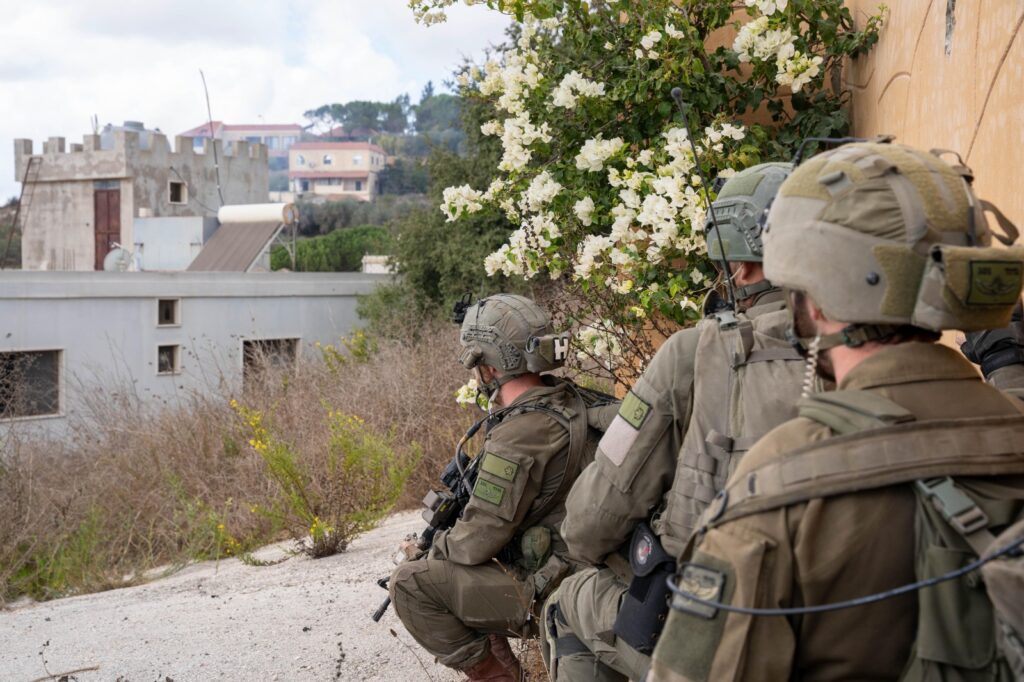FACT SHEETS
Fast Facts: Israel’s ground incursion into Lebanon
October 1, 2024 | AIJAC staff

- On Sept. 30, the Wall Street Journal reported that “Israeli special forces have been carrying out small, targeted raids into southern Lebanon, gathering intelligence and probing ahead of a possible broader ground incursion that could come as soon as this week.”
- On Oct. 1, the IDF announced that it had:
“[begun] limited, localized, and targeted ground raids based on precise intelligence against Hezbollah terrorist targets and infrastructure in southern Lebanon. These targets are located in villages close to the border and pose an immediate threat to Israeli communities in northern Israel. The IDF is operating according to a methodical plan set out by the General Staff and the Northern Command which IDF soldiers have trained and prepared for in recent months.”
- These limited raids are an expansion of “Operation Northern Arrows”, an ongoing airstrike campaign initiated on Sept. 23 that has since hit more than 2,000 Hezbollah targets, including ammunition depots, missiles, drones, launchers, operatives, and other infrastructure used by the terrorist group.
- A complementary operation, “New Order”, wiped out much of Hezbollah’s senior leadership on Sept. 27, including the organisation’s Secretary General Hassan Nasrallah and the Islamic Revolutionary Guard Corps (IRGC) Deputy Commander for Operations General Abbas Nilforushan.
- Many other senior Hezbollah officials and commanders, including two military chiefs, Fuad Shukr and Ibrahim Aqil, had been assassinated before, as well as the commanders of the group’s elite Radwan force. Others have been assassinated in targeted strikes since.
- The goal of these operations is to enable tens of thousands of Israelis displaced from the north since last year to return home. This became an official Israeli war aim on Sept. 16.
- The White House is reportedly demanding that IDF operations be limited and that IDF troops not hold territory for a significant period of time, fearing even that could spark a regional war. While one US official said the Biden Administration understands and supports the aims of the war, there is still a concern about mission creep or that the IDF could get bogged down, as well as the possibility for Lebanese support for Hezbollah to increase. Some reports indicate Israeli officials were angry when the US leaked details about the offensive after being updated.
- Israel’s Channel 12 reported that the scale of the operation has been reduced at the US’s request and will be limited to destroying military targets along the border rather than holding territory. Israeli officials have told the US the aim of the operation is to clear Hezbollah’s military infrastructure along the border in order to create the conditions that would finally see UN Security Council Resolution 1701, which was unanimously adopted in 2006 and called for the disarmament and removal of Hezbollah from southern Lebanon, implemented.
- Lebanese army troops have reportedly pulled back at least 5km from the Israeli border.
- US Secretary of Defence Lloyd Austin spoke with Israeli Defence Minister Yoav Gallant regarding the incursions. According to the readout:
“They agreed on the necessity of dismantling attack infrastructure along the border to ensure that Lebanese Hizballah cannot conduct October 7-style attacks on Israel’s northern communities. The Secretary reaffirmed that a diplomatic resolution is required to ensure that civilians can return safely to their homes on both sides of the border. He and Minister Gallant discussed the importance of ultimately pivoting from military operations to a diplomatic pathway to provide security and stability as soon as feasible… The Secretary and Minister Gallant discussed the serious consequences for Iran in the event Iran chooses to launch a direct military attack against Israel.”
- Iranian Foreign Ministry spokesman Nasser Kanani said:
“There is no need to send extra or volunteer forces of the Islamic Republic of Iran…We have not received any request in this regard from any side, on the contrary, we are informed and are sure that they do not need the help of our forces…[Israel] will not remain without reprimand and punishment for the crimes it has committed against the Iranian people, military personnel and the resistance forces.”
- US President Joe Biden, asked about the potential for a ground operation, said: “I am more aware than you might know, and I’m comfortable with them stopping. We should have a ceasefire now.”
- The European Union warned against a ground operation, with Josep Borrell, its High Representative for Foreign Affairs and Security Policy, saying:
“Arms should now be silenced, and the voice of diplomacy should speak and be heard by all. The sovereignty of both Israel and Lebanon has to be guaranteed. Any further military intervention would dramatically aggravate the situation and has to be avoided.”
- British Foreign Minister David Lammy also called for a ceasefire after discussions with US Secretary of State Antony Blinken, telling Sky News:
“We’ve both seen the reports in the media about a next phase for Israel in Lebanon. We both agreed the position that we had at the UN last week that the best way forward is an immediate ceasefire and to get back to a political solution.”
- The UK chartered a flight for British nationals to evacuate Lebanon. Lammy said:
“The situation in Lebanon is volatile and has potential to deteriorate quickly. The safety of British nationals in Lebanon continues to be our utmost priority. That’s why the UK government is chartering a flight to help those wanting to leave. It is vital that you leave now as further evacuation may not be guaranteed.”
- Australian Foreign Minister Senator Penny Wong said that the Department of Foreign Affairs and Trade “is working with airlines to assist Australians secure tickets on commercial flights… We continue to urge Australians in Lebanon to take the first opportunity they can to depart. Please do not wait for a preferred route.”





